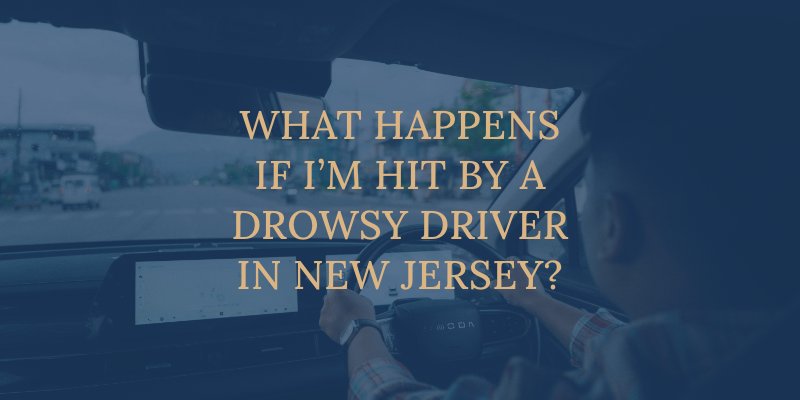What Happens if I’m Hit by a Drowsy Driver in New Jersey?

It takes a driver’s full attention to safely and properly operate a motor vehicle. When a driver is struggling with drowsiness or fatigue, it can interfere with his or her ability to navigate the road. If you get hurt in a crash involving a drowsy driver in New Jersey, you have legal rights. Explore them by consulting with an experienced car accident attorney in New Jersey.
Drowsy Driving Is a Prominent Problem
Drowsy driving means a motor vehicle driver is struggling to maintain safe control of a car due to a high level of fatigue. Sleepiness in a driver can stem from a lack of sleep, insomnia, sleep disorders, sleep apnea, long overnight drives and medications that cause drowsiness.
Drowsy driving is a dangerous issue because it negatively affects various skills and functions required to safely operate a motor vehicle, such as:
- Attention
- Focus or concentration
- Decision making
- Reaction times
- Reflexes
- Motor skills
- Muscle strength
The increased pressure on people to get more done and multitask has led to a rise in the number of drowsy driving accidents. The National Highway Traffic Safety Administration estimates that around 91,000 reported car accidents involved drowsy drivers in a single year. Statistics are often lower than reality, however, as it is difficult to identify drowsiness as the cause of fatal accidents.
Who Pays for a Drowsy Driving Accident in New Jersey?
Under New Jersey’s “choice no-fault” law, all injured parties after a car accident seek compensation from their own car insurance companies, no matter who is at fault. Drivers are required to choose between basic and standard insurance policies. With a standard policy, a driver can also opt for limited or unlimited right-to-sue coverage.
With the right type of insurance, you can file a claim against a drowsy driver for causing your car accident in New Jersey. If you have serious or catastrophic injuries, you will have the right to sue regardless of your insurance type. Pursuing a claim against another driver, however, requires proof of fault.
How to Prove a Drowsy Driving Claim
Drowsy driving can be difficult to prove if the at-fault driver does not admit guilt or confess to being fatigued. Unlike drunk driving, no test can be done to prove that a driver is too drowsy to drive. Yet drowsiness and intoxication pose similar crash risks.
Witnesses expressing that they saw potential signs of drowsiness in the moments leading up to the crash can help prove a case. Examples include:
- Swerving all over the road
- Drifting in and out of multiple lanes of traffic
- Driving off the road or hitting rumble strips
- Erratic braking or accelerating
- Following too closely
- The driver’s head nodding
An analysis of the crash scene can also provide evidence of a tired driver, such as a lack of skid marks indicating that the driver did not try to brake. If the driver was working at the time of the crash, there may also be employment records showing that the driver had been driving too long or was exceeding the hours-of-service restrictions at the time of the accident.
What to Do Next
If you get involved in an accident with a drowsy driver, report it to the police right away. Go to the nearest medical center for injury treatment. Report the accident to your own car insurance company first, then contact the other driver’s insurer to file a claim.
Before engaging in settlement negotiations with an insurance provider, contact a personal injury attorney in New Jersey. Unlike an insurance company, an attorney will want to maximize your financial recovery. You can count on a lawyer to guide you through the steps it takes to file a claim and get justice against a drowsy driver in New Jersey.
